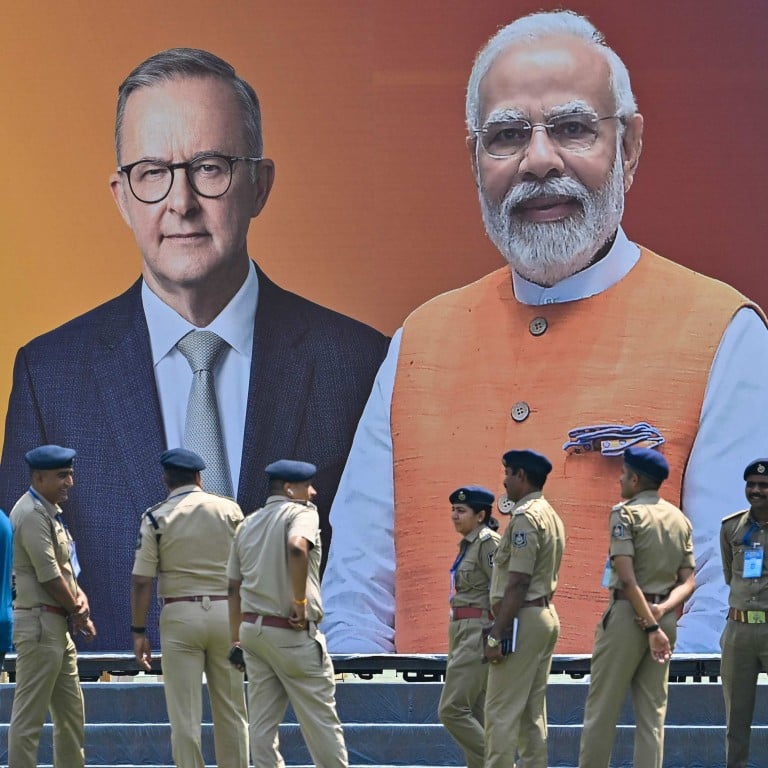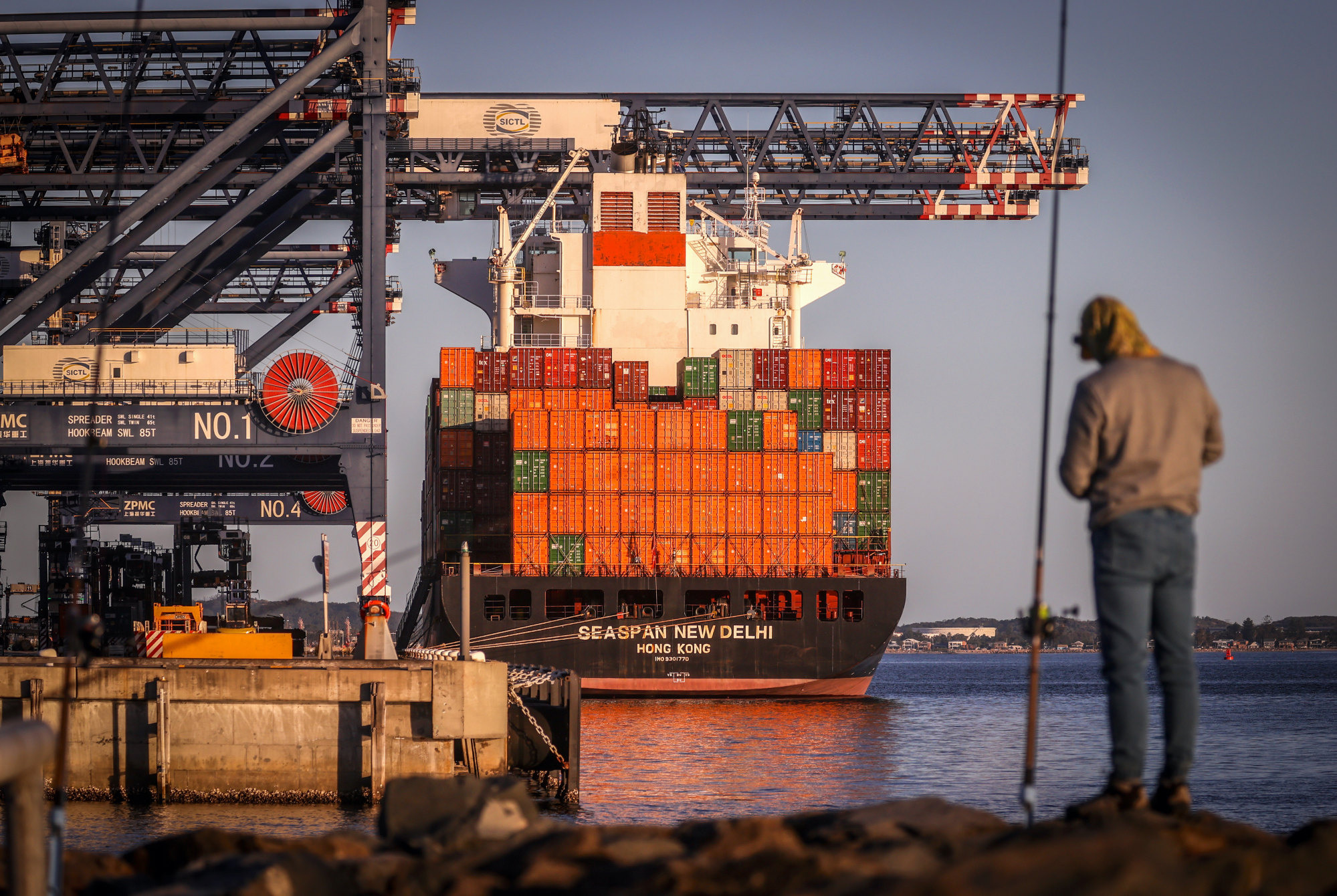
From trade to defence, Australia leans in to India friendship to bat away China threat
- Renewable energy, defence among issues on agenda as Albanese works to diversify Australia’s trading partners
- Countering China and winning domestic votes – especially from growing Indian diaspora – also among aims of the trip, analysts say
“Our two nations share a rich history – bound by our democratic values and enlivened by genuine friendship and fierce sporting rivalry,” Albanese said in a speech at a business summit in Sydney before his trip.

“Australia has other friends and they are like-minded, [so it] will help Australia push back against Chinese assertiveness and economic dominance,” she said. “There might also be electoral compulsions and an appeal to the Indian diaspora, which is growing.”
The two nations have shared a fierce cricket rivalry and both Modi and Albanese are expected to attend a cricket game in Ahmedabad on Thursday, as Australia face India in the fourth and final match of their series in front of a possible record test crowd.
More than 110,000 people are expected on the opening day of the fourth Test at the Narendra Modi stadium, the world’s largest cricket arena.
Albanese said at the summit the delegation of 25 CEOs he was taking would be one of the biggest taken to any of Australia’s trading partners, and for good reason.
Expanding trade with India would be in line with the Australian government’s goals to diversify both trading partners and goods traded, Albanese added.
Australia’s trade with India in 2021-22 was A$46 billion (US$31 billion), roughly the same as Singapore’s, according to the Australian trade department.
That makes up just over 4 per cent of Australia’s trade, compared with China at 27 per cent, or A$285 billion.
Australia ‘understands’ India has complex ties with Russia: analysts
Australia has been diversifying its trade sources since the fallout from China at the start of the pandemic when the Morrison government called for an independent investigation into the coronavirus without consulting Beijing.
Informal bans on several key trades including coal and wine have triggered an urgency in Canberra and among Australian exporters to diversify to other markets.
While analysts say India cannot replace China where trade is concerned, talks in this area have turned around quickly.
Canberra and Delhi signed their free-trade deal Australia-India Economic Cooperation Trade Agreement last year, ending a decade of talks stymied by setbacks and disagreements.
Last month, foreign minister Penny Wong announced the launch of the Centre for Australia-India Relations, a national platform to strengthen Australia’s relationship with India in areas including business and research.
The countries’ defence relationship has stepped up a notch as partners in the Quad security pact. In 2020, Australia was included in the Malabar naval exercises along with India, Japan and the US.

Australia has also maintained its position of not reproaching India publicly over the latter’s refusal to condemn Russia and its human rights abuses against Indian Muslims.
The Indian diaspora’s participation in Australian politics is also increasing. Indians are now the second-largest immigrant community in Australia and politicians, including Albanese, publicly courted their votes in last year’s federal election. The number of Australian politicians with Indian origins is also rising.
While India still suffers from domestic institutional frailties such as corruption, it has shown improvement, according to Brendan Augustin, president of the Australian Institute of International Affairs (Western Australia).
“India is not going to be like China or Australia’s traditional partners in East Asia, but neither is it going to be as abysmal as the “India of the past”,” Augustin, a former Australian diplomat and resources industry executive, said.
“The reality is that India will be somewhere in the middle for Australia’s trade and investment but it is likely to be lumpy [with ups and downs].”
Can India fill the China-shaped hole in Australia’s economy?
Albanese on Tuesday demonstrated his awareness of these issues, saying he would be open to a visit to China if he was invited.
“I’ve said we will cooperate with China where we can, we’ll disagree where we must, but we’ll engage in our national interest. And they are our major trading partner, so we do have an interest there,” he said.
Trade minister Don Farrell is already gearing up for a meeting with his counterpart, commerce chief Wang Wentao, following their virtual session last month, while Australian agriculture minister Murray Watt said at a conference in Canberra on Tuesday there were signs communications between Australian exporters and Chinese authorities had improved.
The Australian business community also plans to send delegations to China, with iron ore miner Fortescue Metals Group’s founder Andrew Forrest kicking off with a trip at the end of this month.
New data released by the Australian Bureau of Statistics on Tuesday show the value of Australia’s latest monthly exports to China hit another high of A$16.6 billion.

